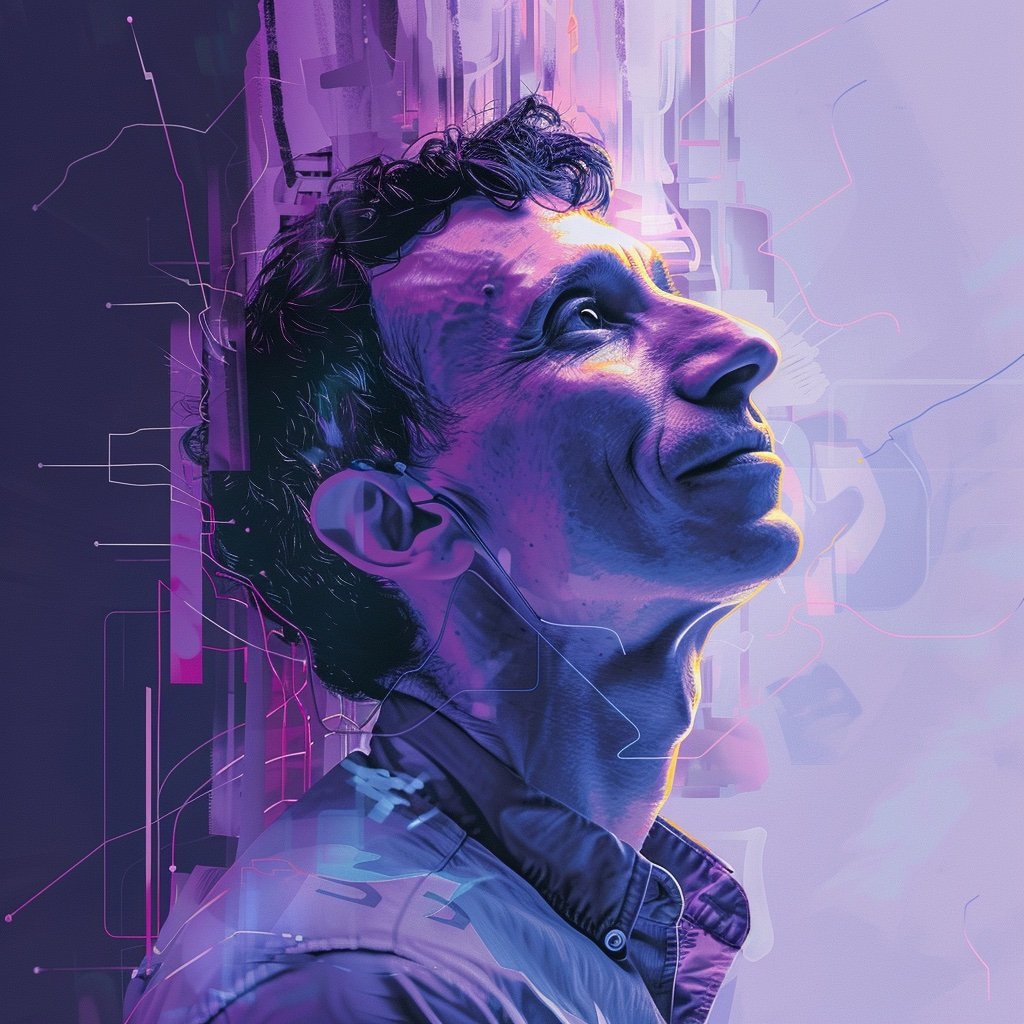Join Stephen Reid and special guests Hanzi Freinacht (Emil Ejner Friis), Ellie Hain, Alexander Beiner, Michael Garfield & Rufus Pollock for a four-week deep dive into Technological Metamodernism, 17th Sep – 8th Oct 2024
The emerging philosophy of metamodernism offers crucial tools for grappling with technology's transformative impacts on self, culture and society. It charts a path beyond the polarized debate between techno-utopian accelerationism (the belief that rapid technological progress will solve all our problems) and despairing pessimism (the belief that our technological trajectory is fundamentally destructive and irredeemable).
Through provocation and dialogue, this course invites you to adopt a metamodern mindset - embracing both/and thinking, an awareness of allergies and a focus on reconstruction - as we explore tech's leading edges. How might metamodernism inform the development of AI, DAOs and transhumanism? Can it help us to bridge tech with the realms of nature, art and spirituality? What new and ancient narratives and mythologies might we call on to cultivate a metamodern relationship to technology and its role in our individual and collective evolution?
Led by experienced educator and technologist Stephen Reid, this course offers a unique opportunity to take a philosophical deep dive into the heart of our technological age. No previous knowledge of metamodernism is required.
Course outline
Sessions will take place 4pm–6pm UK time (BST/GMT)/5pm–7pm Europe time (CEST/CET) on four consecutive Tuesdays via Zoom:
Tuesday 17th September 2024
Tuesday 24th September 2024
Tuesday 1st October 2024
Tuesday 8th October 2024
The first hour will be a presentation of the key themes of the week, with the second hour reserved for conversation with a guest expert and Q&A. Sessions will be recorded and shared (so you can catch up if you're late/miss one).
Week 1: Introduction (Tuesday 17th September 2024)
Current mainstream discourse around technology: e/acc, doomers and technofeudalism
What is technology? Exploring definitions and the history of technology
What is metamodernism? Origins and key ideas
Technological metamodernism, and metamodern technology: Why the tech and metamodern communities need each other
Week 2: Metamodern Takes on Technology (Tuesday 24th September 2024)
Vitalik Buterin's d/acc
Daniel Schmachtenberger's Axiological Design and Third Attractor frameworks
Hanzi Freinacht's views on technology, and other explicitly metamodern takes
Week 3: Technological Metamodernism, Myth and Magic (Tuesday 1st October 2024)
Ritual and initiation in tech: From ancient traditions to modern rites of passage
Hyperstition and the role of imagination in shaping our relationship with technology
Technology through the lens of myth and magic: the work of Josh Schrei
Sophie Strand's Flowering Wand: Reconceiving technological archetypes
Week 4: Metamodern Tech Futures (Tuesday 8th October 2024)
Solarpunk, lunarpunk and the role of art, design and speculative fiction
Metamodern DAOs, metamodern AI
Reality Switch Technologies: DMT, lucid dreaming and the jhanas
Governance, ethics and wise innovation
Building the metamodern tech community
Guest speakers
-

Hanzi Freinacht
-

Ellie Hain
-

Alexander Beiner
-

Michael Garfield
-

Rufus Pollock
Course leader
Stephen Reid is a transdisciplinary technologist, facilitator and Dharma student who has trained in the fields of AI/ML, complexity science, physics, transformative coaching and insight meditation. Current projects include hosting immersive residencies as a co-founder of Futurecraft, consulting for top organisations on AI projects, and leading the development of the Dandelion platform for regenerative events and co-created gatherings as part of not-for-profit worker co-op Symbiota.
Previously, he founded The Psychedelic Society, taught the Introduction to AI, Introduction to web3, How to DAO, Tools for the Regenerative Renaissance, The Promise of Decentralisation & Life as Practice courses, and served as the youngest ever board member of Greenpeace UK. Stephen has an MPhys in Physics from the University of Oxford, where he specialised in quantum field theory, an MRes in Complexity Science from the University of Bristol, and a Professional Certificate in Machine Learning and Artificial Intelligence from UC Berkeley. He lives with his partner Laura in Stockholm, Sweden.




